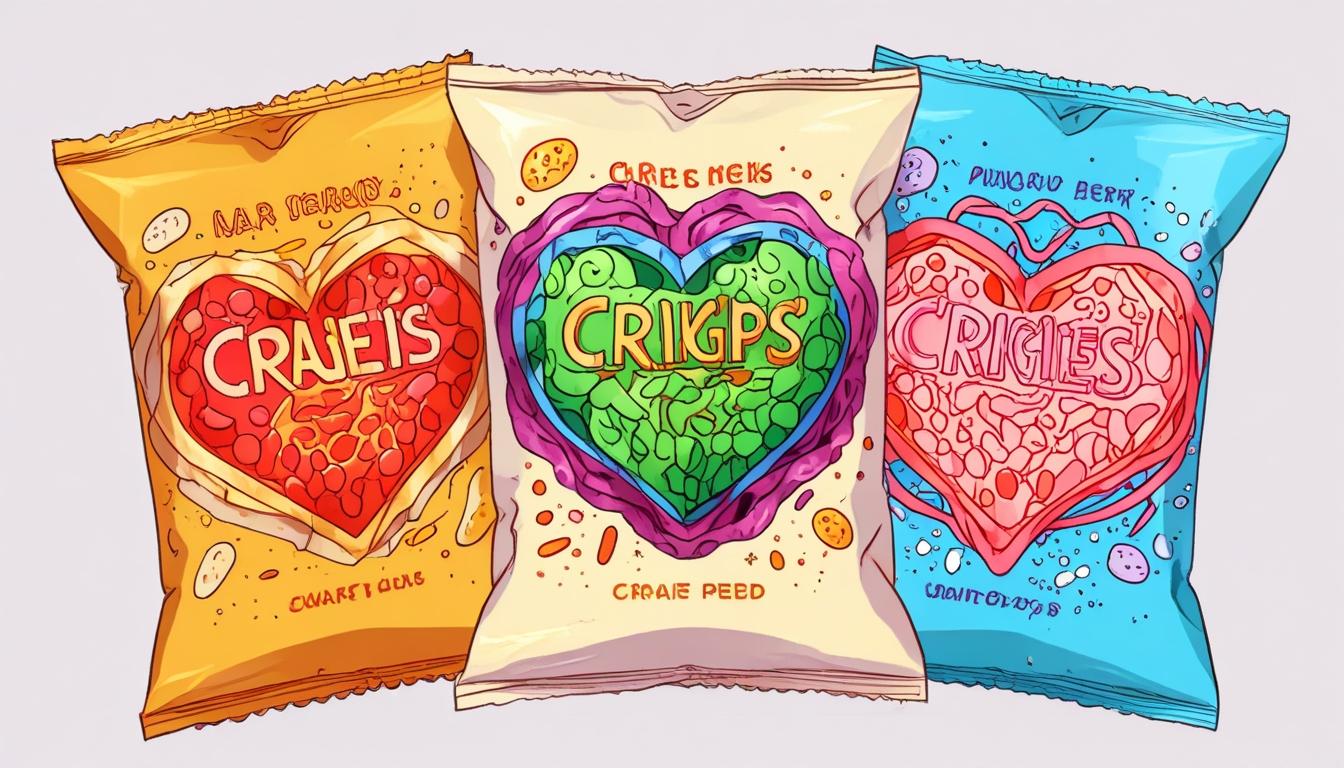The Rising Risk of Ultra-Processed Foods: New Research Highlights Alarming Health Impacts
Just a handful of ultra-processed foods a day, such as crisps and sweets, may elevate the risk of serious health issues like heart disease and cancer, according to compelling research emerging from China. This study, which tracked the diets of over eight million adults, adds significant weight to a growing body of evidence condemning the consumption of additive-laden foods.
Experts have long warned about the dangers of ultra-processed foods (UPFs), which are defined as items that contain more artificial ingredients than natural ones. For decades, these products have been linked with various health risks, particularly type 2 diabetes and cardiovascular disease. Recent findings from a comprehensive review indicate that consuming an additional 100 grams of UPFs daily—approximately the equivalent of two packets of crisps—could increase the risk of digestive diseases by nearly 20%.
Dr. Xiao Liu, a cardiology expert at Sun Yat-sen University and co-author of the study, emphasised that these foods are typically high in added sugars, sodium, and unhealthy fats, while lacking essential nutrients like fibre and vitamins. This nutritional imbalance can lead to a myriad of adverse health outcomes. “Emerging evidence suggests a dose-response relationship between UPF consumption and negative health outcomes—meaning the more UPFs consumed, the greater the health risk,” he stated following the findings presented at the American College of Cardiology (ACC) Asia 2025 conference in Singapore.
In examining 41 studies from regions such as North and South America, Europe, Asia, and Oceania, researchers established that every additional 100 grams of UPFs correlates with a 5.9% increased risk of cardiovascular events and a 1.2% rise in cancer risk. Notably, the potential for developing high blood pressure was found to increase by 14.5%, while the likelihood of early death rose by 2.6%. These alarming statistics paint a sobering picture of the health implications of a diet high in UPFs.
The classification of foods established by the Nova system, developed in Brazil, distinguishes between unprocessed foods like fruits and vegetables, processed culinary ingredients such as sugar and salt, and ultra-processed foods laden with additives. The UK stands out as particularly prone to UPF consumption, with such foods constituting an estimated 57% of the national diet. This dependency on UPFs is believed to be a significant contributor to the obesity epidemic, costing the NHS approximately £6.5 billion annually in treating weight-related diseases.
Complementing this study, research published by the International Agency for Research on Cancer (IARC) involving 266,666 adults across seven European countries corroborates the conclusion that diets rich in ultra-processed foods are linked to increased risks of cancer and cardiometabolic diseases. This broad analysis highlights the urgent need for public health interventions aimed at reducing UPF consumption.
The implications of these dietary habits are particularly concerning when examining the effects on children. Disturbing data suggests that young children who consume high amounts of UPFs exhibit early signs of poor heart health and diabetes risk factors, signalling a rising tide of health complications from an early age.
As these findings circulate, health professionals and researchers urge governments to enhance food labelling regulations to help consumers make more informed choices. There is a growing consensus that reducing UPF intake even modestly could result in significant health benefits. The landscape of our diets is shifting, and it is crucial that society responds with effective strategies to mitigate the looming health crisis associated with ultra-processed foods.
Reference Map:
- Paragraph 1 – [1], [3]
- Paragraph 2 – [1], [5]
- Paragraph 3 – [1], [6]
- Paragraph 4 – [1], [4]
- Paragraph 5 – [2], [7]
Source: Noah Wire Services
